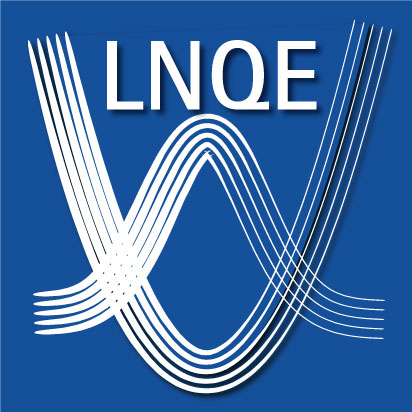With the international INNOspace Masters competition, the German Space Agency has been honouring ideas for the transfer of technologies and expertise in the field of space travel since 2015. The competition winners receive customised support to turn their idea into a real innovation project or company. This year, 445 participants from 24 countries submitted a total of 199 ideas in six categories of applied research with market-ready solutions. The top three in each category qualify for the final on 9 October in Berlin, where the respective placings and the overall winner will be announced.
Among the finalists is the team of QuantumFrontiers members Gabriel Müller, Gina Kleinsteinberg, Christian Struckmann, Jan-Niclas Kirsten-Siemß and Naceur Gaaloul from Leibniz Universität Hannover. With their submission QuSSat (Quantum Sensor Satellite-based Simulator for Earth Observation and Inertial Navigation), they convinced the jury and achieved a TOP 3 ranking in the BIC Challenge supported by the European Space Agency ESA.
QuSSat is a new interface for quantum sensors to dramatically reduce their development time and cost. The interface is so easy to use that users don’t need to learn anything about quantum mechanics to benefit from the advantages of quantum sensor technology in space missions. The software allows analysts, geodesists or engineers to define the specifications of quantum sensors on satellite missions.
Supported by the QuantumFrontiers Entrepreneur Excellence Programme (QUEEP), the team is currently working on establishing the spin-off HaQS (Hannover Quantum Sensing) to further develop QuSSat, among other things, and to become a central player in Europe for simulations and software for quantum sensors.
Source: QuantumFrontiers News 08/01/2024










![[Translate to English:] Logo Zusammenland farbig](/fileadmin/_processed_/a/9/csm_zusammenland_4c_e78505eb7d.png)
![[Translate to English:] Logo Zusammenland-schwarzweiß](/fileadmin/_processed_/1/2/csm_zusammenland_sw_f06954e75c.png)